
While there’s a natural progression between each of Talk Talk’s five studio albums, the distance between their 1982 synth-pop debut The Party’s Over and 1991’s jazz and ambient-influenced Laughing Stock represents one of the most stunning transformations in popular music; a band that was originally pigeonholed as a one-hit-wonder went on to produce some of the most unique and timeless albums of their era.
Talk Talk formed in London in 1981. Firing synthesiser player Simon Brenner after the debut, the group pared down to a three-piece, with vocalist and songwriter Mark Hollis, bassist Paul Webb and drummer Lee Harris. While Webb and Harris are fine musicians and important features of the band’s sound, it’s the axis of Hollis and producer/keyboardist Tim Friese-Green who became the key figures in the group, enlisting legions of studio musicians to create lush layers of organic instrumentation.
I don’t care for the group’s early material at all, but on 1986’s The Colour of Spring they found their feet spectacularly, creating a pop masterpiece that masterfully combined organic textures with bright and brash 1980s production. Talk Talk became more esoteric with 1988’s Spirit of Eden, an album that’s credited with inventing post-rock. 1991’s Laughing Stock and Mark Hollis’ 1998 solo album take the Spirit of Eden sound even further. Mark Hollis all but retired from music after his solo album, but he left a legacy of four phenomenal albums.
Talk Talk Album Reviews
The Party’s Over | It’s My Life | The Colour of Spring | Spirit Of Eden | Laughing Stock | Asides Besides | Mark Hollis
Favourite Album: The Colour of Spring
Overlooked Gem: Mark Hollis
The Party’s Over
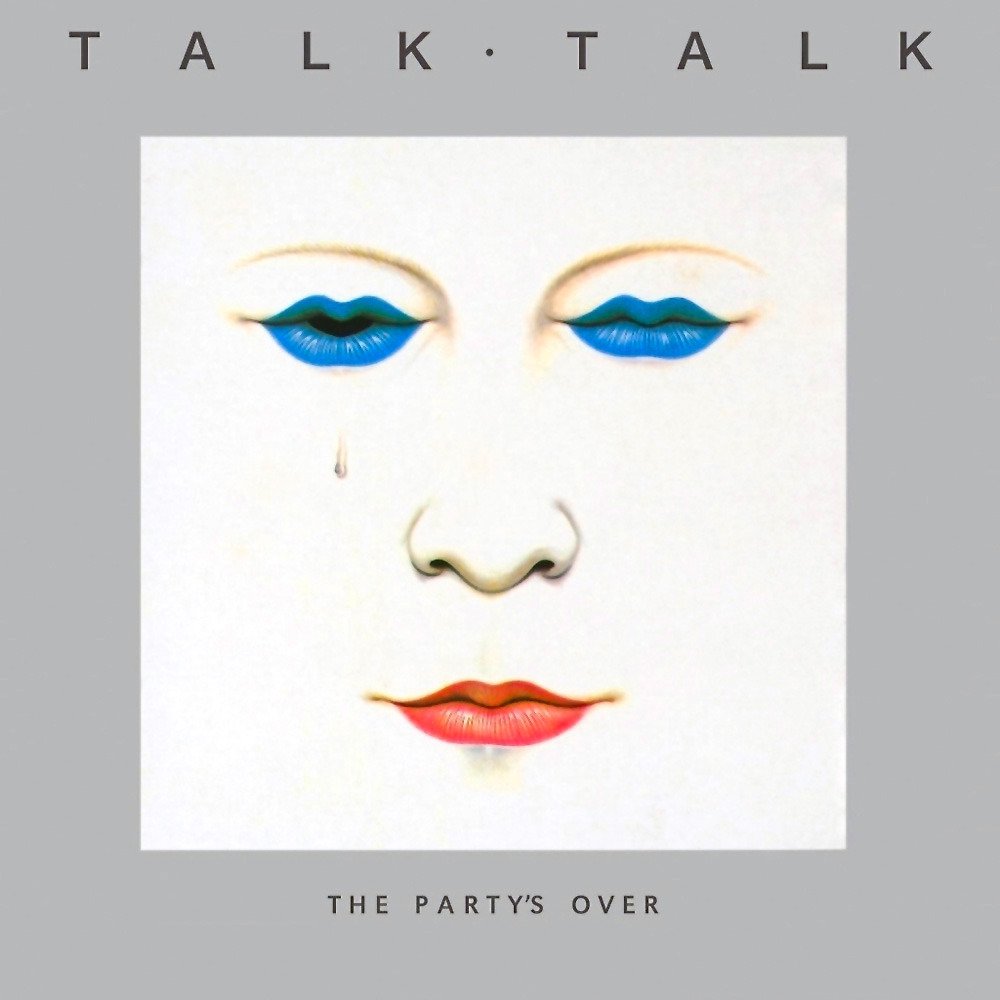
1982, 4.5/10
It’s difficult to bother listening to Talk Talk’s first two formative albums when there are far stronger records in their discography. The Party’s Over is Talk Talk’s only album with keyboard player Simon Brenner and it’s languid and romantic, comparable with late-period Roxy Music and contemporary Duran Duran.
The combination of synths with the whine in Mark Hollis’ voice is unpleasant, and the group would sound much better when they switched to organic textures from 1986’s The Colour of Spring. Paul Webb’s fretless bass doodling is often the most interesting part of the record. The Party’s Over is a low-energy album, and the best song is the opening ‘Talk Talk’, with its line “all you do to me is talk talk”, which along with ‘Today’ at least has some vitality.
Unlike Talk Talk’s other records, I’ve never owned The Party’s Over on CD. Listening on Spotify, there’s always a remarkable lift in quality when the album finishes and another random Talk Talk song starts
It’s My Life
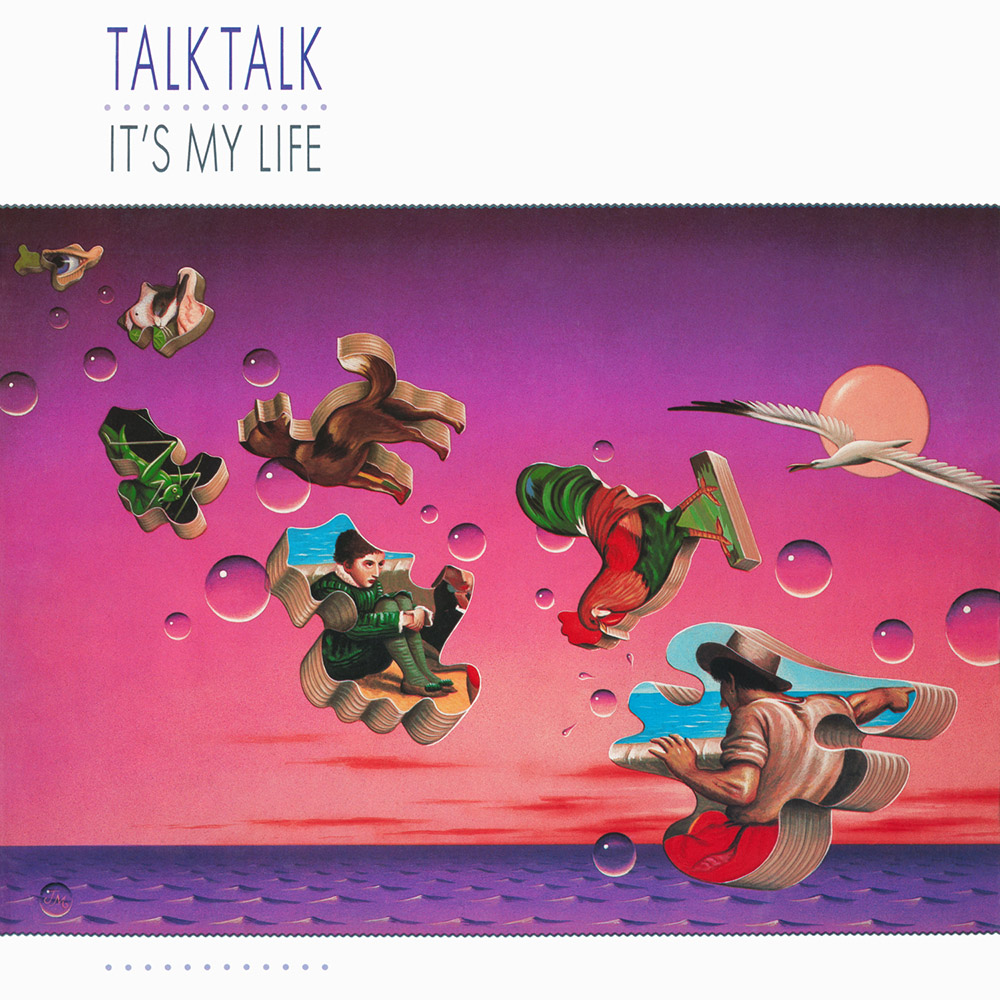
1984, 4.5/10
Talk Talk are still in synth-pop mode for their second album, It’s My Life. It’s merely a competent synth-era record, although with good taste and economical arrangements and topped off with an emotive singer. The best song is the one that most accurately predicts their future course; ‘Tomorrow Started’ features the jazzy feel and more experimental textures that would mark their later records, with a distorted guitar used as background ambience on an otherwise gentle track.
Most of the first side is relatively solid – the title track was remade into a hit for No Doubt, and it’s a well-constructed and hooky piece, while ‘Such A Shame’ and ‘Dum Dum Girl’ are also fine singles of their era, although the latter’s central hook is almost irritating enough to write it off entirely. The second half is less convincing, with badly dated material like ‘Call In The Night Boy’ and ‘It’s You’, with little happening musically beyond simple keyboard riffs.
There are signs of something beyond perfunctory hit-making on It’s My Life, but I doubt that too many pundits in 1984 would have predicted Talk Talk’s following albums to be so sublime and genre-breaking.
The Colour of Spring
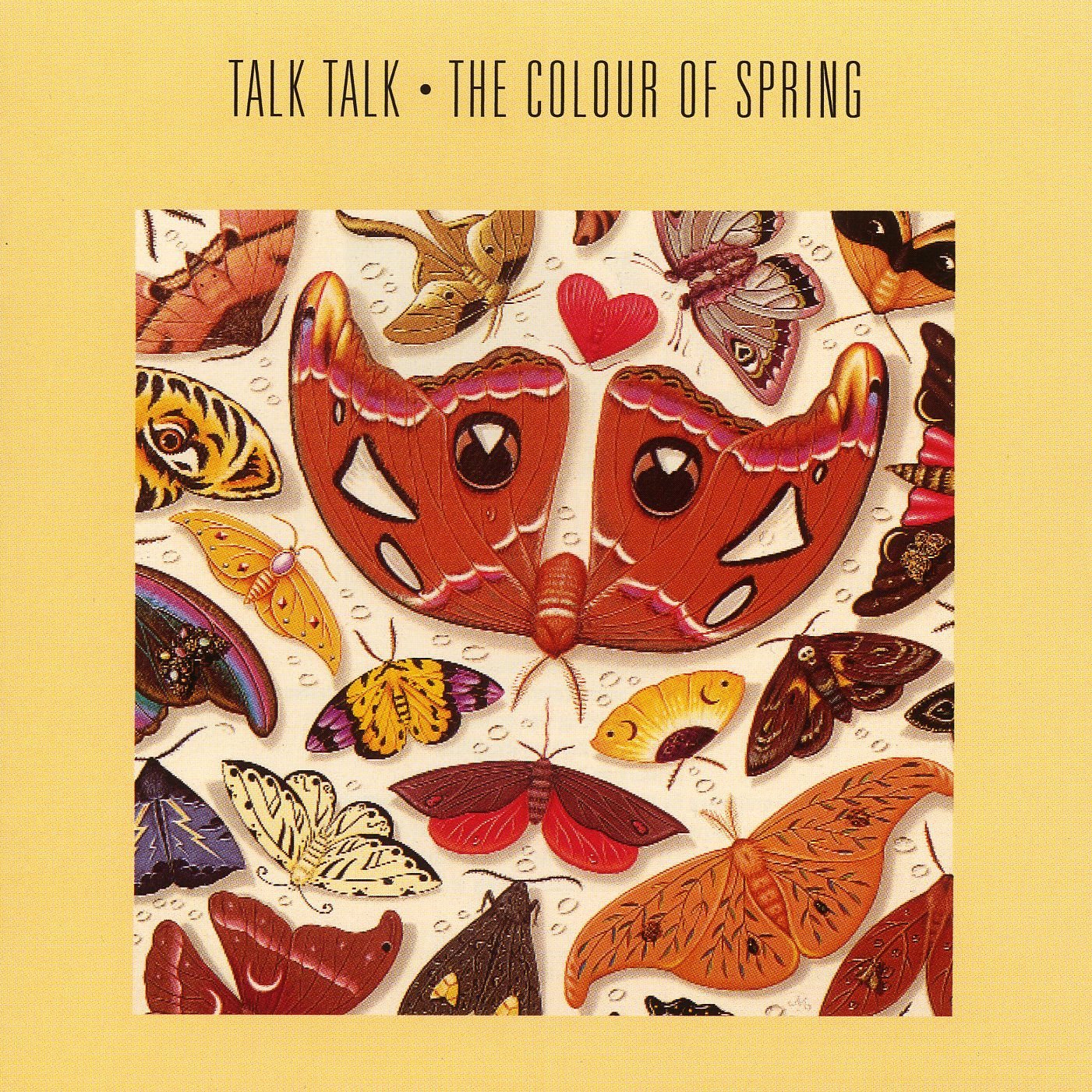
1986, 10/10
The Colour of Spring is one of the biggest quality leaps in the history of popular music. The Colour of Spring takes all the best elements of mid-1980s pop – huge hooks and clean production (which suits this band perfectly) – and adds a few unique elements of its own, emphasising subtlety and nuance, and relying on organic instruments. Synthesisers are all but supplanted by piano, organ, mellotron, and orchestral instruments to supply the colour on this vivid and expressive record. Producer Tim Friese-Green is prominent, co-writing every track with Mark Hollis, producing and playing keyboards on most songs.
These songs successfully bridge the gap between mainstream pop and artiness, using creative arrangements; the children’s choir on ‘Happiness is Easy’, the infectious piano bassline of ‘Life’s What You Make It’, and songs dropping into gently psychedelic solo sections. They sound like potentially huge hits if the group played by the pop rules more closely, but Hollis and Friese-Green constantly challenge themselves with lateral instrumentation and structures. A pair of songs break away from the pop idiom altogether, pointing the next direction the band would take; the gentle ‘Chameleon Day’ is almost nothing but atmosphere, while the jazzy piano-led ‘April 5th’ thrives on the yearning in Hollis’ voice. These two pieces help to give the album balance and embellish it with a more reflective and beautiful tone overall. The album’s six other songs are also uniformly strong; the white soul of ‘Give It Up’ rides a fantastic groove from Webb and Harris, ‘Living In Another World’ and ‘Time It’s Time’ are catchy and climactic, while the striking ‘Life’s What You Make It’ is one of the best singles of its decade.
With The Colour of Spring, Talk Talk went from a passable synth-pop band to making beautiful and ambitious pop music.
Spirit Of Eden
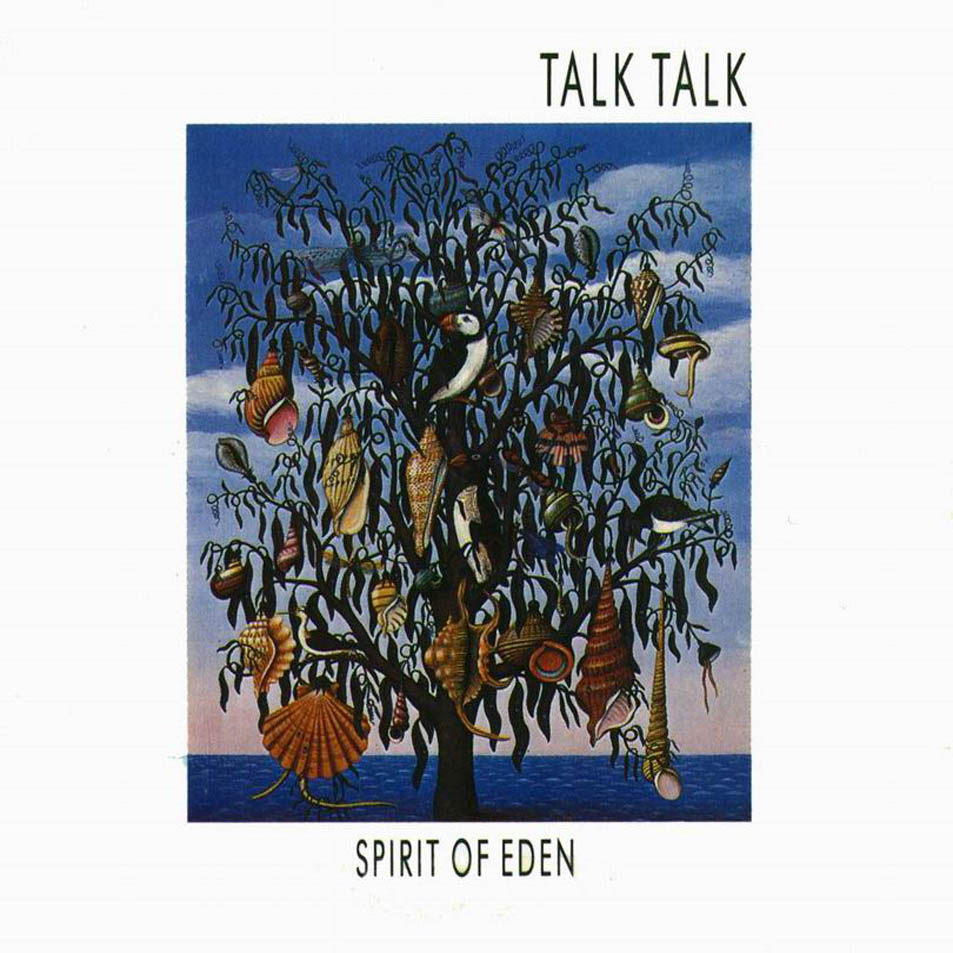
1988, 9.5/10
The jump from The Colour Of Spring to Spirit Of Eden is as much an advance as The Colour Of Spring was from its predecessor. The result of fourteen months of recording in an abandoned Suffolk church, it’s warm and inviting, filled with rich organic sounds like its predecessor, but downbeat, subtle and gorgeous, where its predecessor relied on pop hooks. Spirit Of Eden was made before the term post-rock was coined, and it’s very much a pioneer of that genre, dispensing with rigid verse-chorus structure in favour of a more impressionistic style, laying down colours and emotions. In terms of harmonic structure and melody, Spirit Of Eden is relatively pedestrian and slow-moving, shifting the focus onto production and arrangements, and onto Hollis’ yearning vocals.
There’s also a deep air of spirituality about Spirit Of Eden; the anti-heroin statement of ‘I Believe In You’ is the only song where the subject matter is spelt out, and even that is underpinned by a spiritual current, while titles like ‘Desire’ and ‘Inheritance’, and lyrics like “rage on omnipotent” only mirror the record’s musical content. Its difficult to imagine each of the album’s six tracks outside their context, as they’re designed to work as a suite; the first three all segue together, while the long silences between the tracks on the second side are just as much a critical part of the album’s flow. And each piece has its own distinct character, whether it’s the surging and unexpectedly violent guitars of ‘Desire’, the soothing organ hook of ‘I Believe In You’, or the naked vulnerability of the closing ‘Wealth’.
I don’t enjoy Spirit Of Eden as much as the huge pop hooks of The Colour Of Spring, but in many ways it’s an even more dazzling and timeless achievement.
Laughing Stock
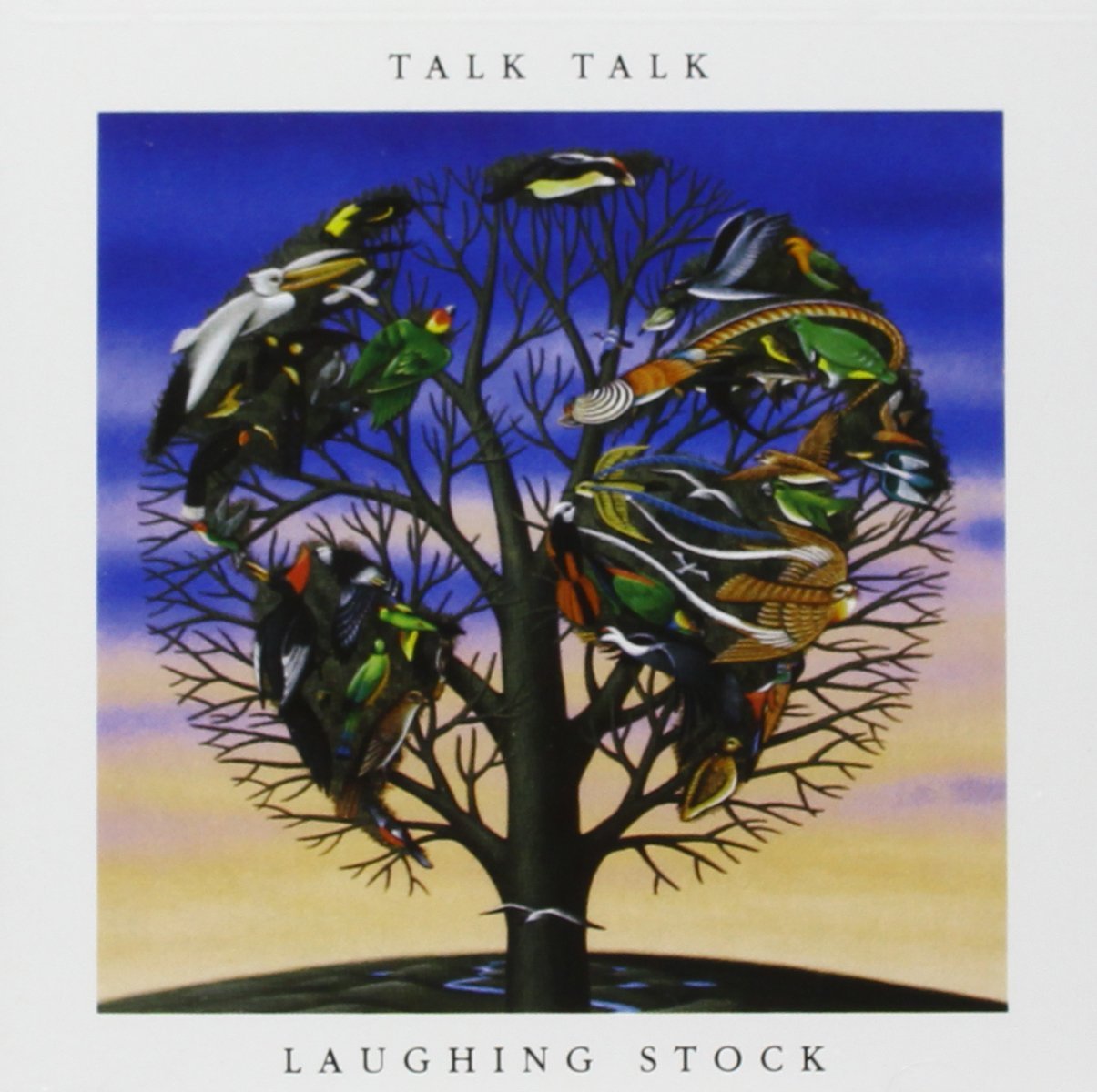
1991, 9/10
After Spirit Of Eden failed to spawn a successful single or follow The Colour of Spring into the UK top ten, despite its huge recording expense, Talk Talk ended their relationship with a disillusioned EMI. Paul Webb also quit the band, later collaborating with Portishead’s Beth Gibbons as Rustin’ Man. The remaining duo of Mark Hollis and Lee Harris continued for one last album, released on the jazz label Polydor. Coincidentally, it’s actually the jazz feel of the rhythm tracks – Harris jazzier drumming style and the acoustic bass of the session players – that’s the single biggest departure from the Spirit Of Edensound. Otherwise Laughing Stock is a gentler, more subtle sequel; apart from the violent guitars of ‘Ascension Day’, it rarely raises above a gentle murmur.
It would be a shame if Hollis and Friese-Green didn’t continue in the ground-breaking vein of Spirit Of Eden, and this album is very nearly as good; it’s just the relatively sedate and uneventful opening and closing tracks that stop this album reaching the same heights. The remaining four tracks, though, are largely sublime, pushing out the boundaries established by Spirit Of Eden. Hollis’s guitar assault in ‘Ascension Day’ is both wilder and more refined than the previous album’s ‘Desire’, while ‘Taphead’ pushes further into avant-garde territory. ‘After The Flood’ and ‘New Grass’ both approach the ten-minute mark and are both gorgeous, relying on vivid acoustic textures.
Laughing Stock is a fine, if premature end, to a wonderful career.
Asides Besides
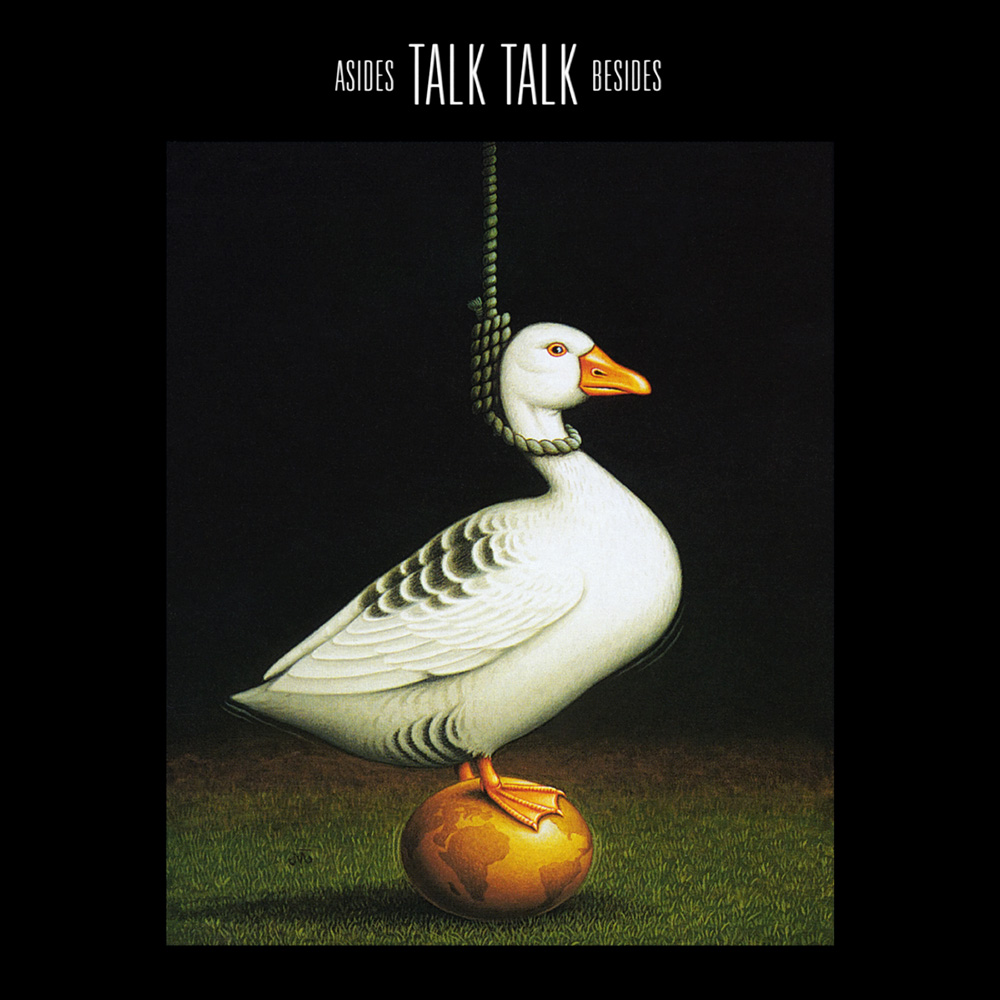
1998, not rated
This two-disc set consists of a disc of remixes and a disc of b-sides. Most of the material focuses on the period around the first two albums, and I’m not that excited about the remixes, but buried right at the end of the second disc is some excellent material from The Colour of Spring and Spirit of Eden eras – the single edit of ‘Eden’ isn’t so exciting, but these songs are all strong additions to a slender catalogue:
“It’s Getting Late in the Evening” – 5:46
“For What It’s Worth” – 5:22
“Pictures of Bernadette” – 5:04
“John Cope” – 4:39
Mark Hollis – Mark Hollis
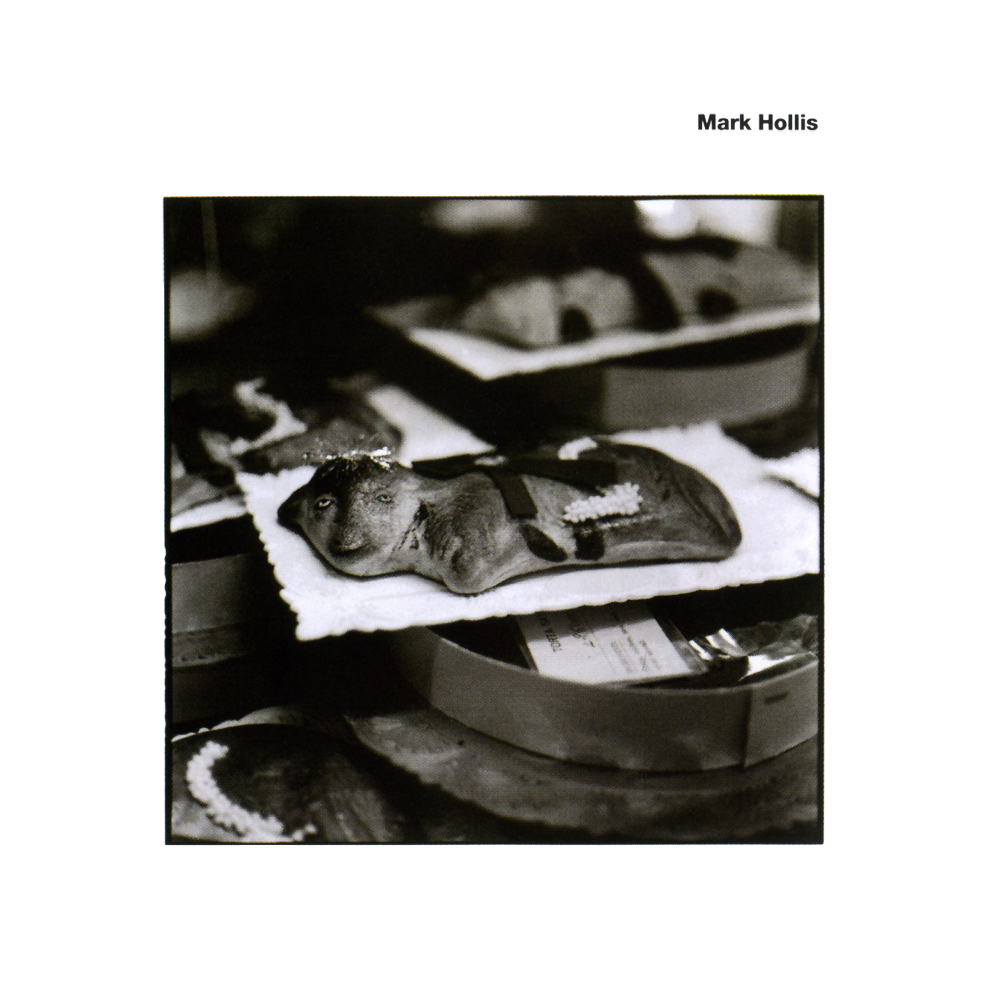
1998, 8/10
This self-titled debut is the only full album that Hollis has released since Talk Talk finished their career with Laughing Stock; since then he’s prioritised his family and largely abandoned the music industry. Mark Hollis is even more subdued than the quiet parts of Laughing Stock; it’s quiet, minimalist, and almost solely performed on acoustic instruments. Gentle piano and acoustic bass are often the primary textures. Hollis stated that he was influenced by 20th-century classical music while recording, and instruments like clarinets and bassoons add an orchestral flavour.
The highlight is ‘The Daily Planet’, with its hypnotic woodwind riff and soaring melody, while A Life 1895-1915 tells the story of World War One poet Roland Leighton. It’s not quite as accessible as Hollis’ work with Talk Talk, because it’s gentler and subtler. But since Hollis has produced so little material in his career, Mark Hollisis an absolutely essential part of his story.
Ten Favourite Talk Talk Songs
Ascension Day
The Daily Planet (Mark Hollis solo)
I Believe In You
Eden
Life’s What You Make It
Give It Up
New Grass
Pictures of Bernadette
Living In Another World
The Rainbow
Back to 1980s Reviews…
12 Comments
Leave a Reply
Related Pages
About
Aphoristic Album Reviews is almost entirely written by one person. It features album reviews and blog posts across a growing spectrum of popular music.
Review Pages
Read about the discographies of musical acts from the 1960s to the present day. Browse this site's review archives or enjoy these random selections:
Blog Posts
I add new blog posts to this website every week. Browse the archives or enjoy these random selections:
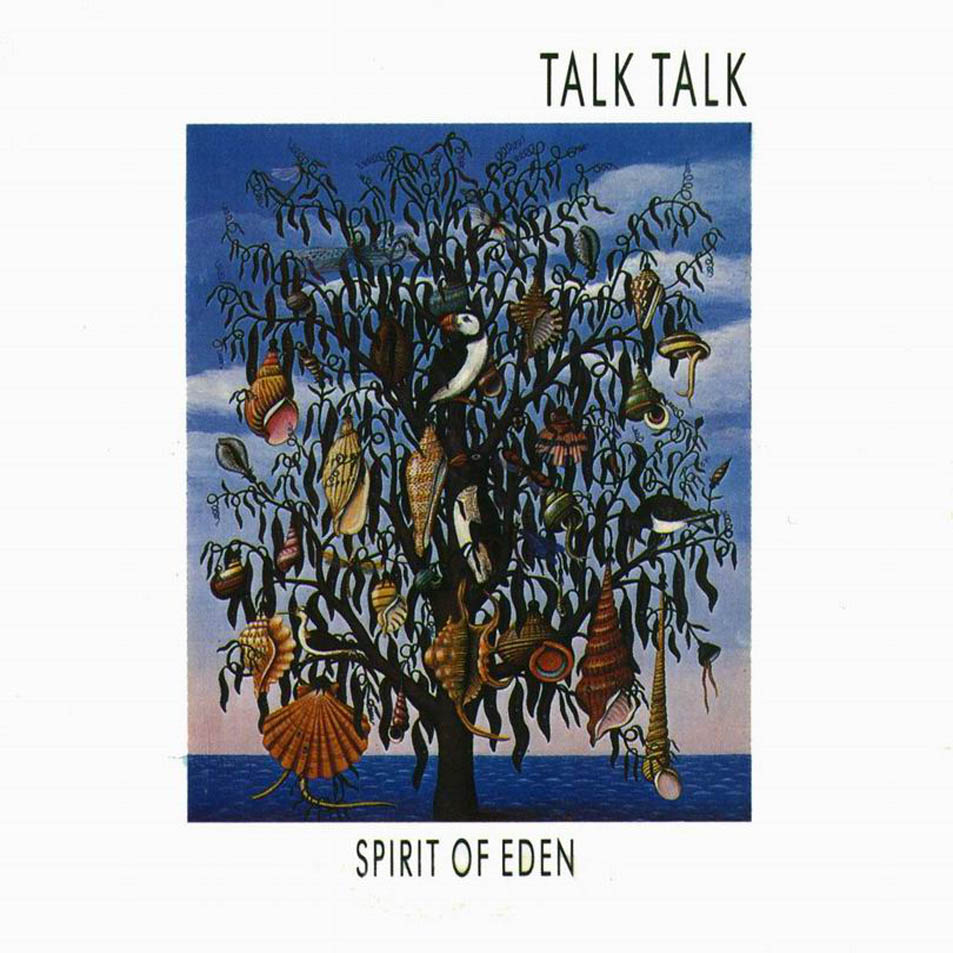
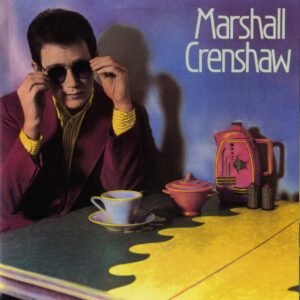
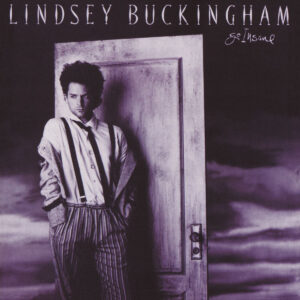

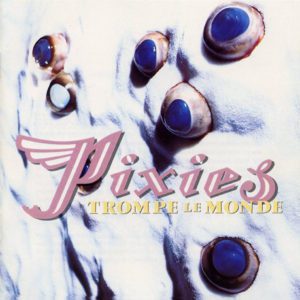
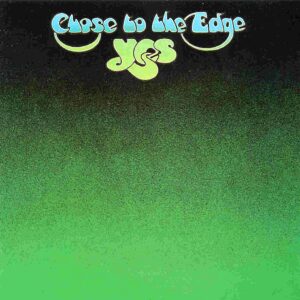
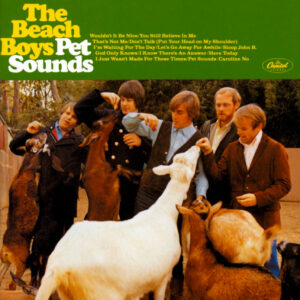
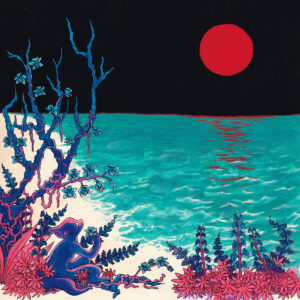
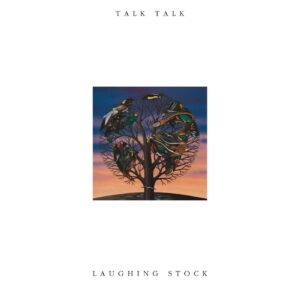
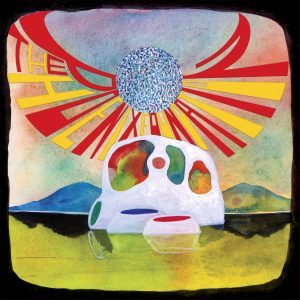
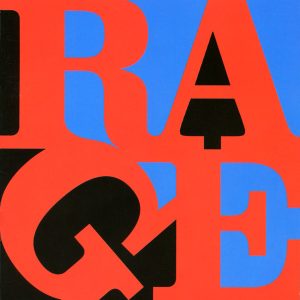
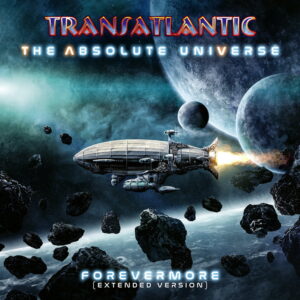
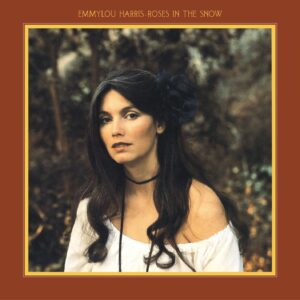
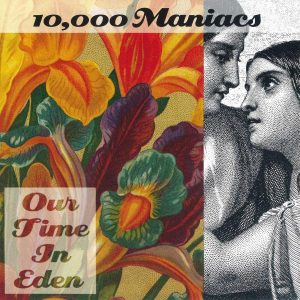
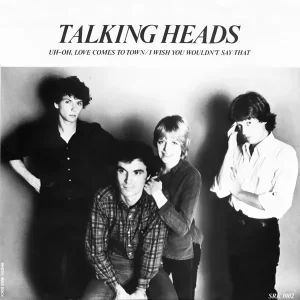
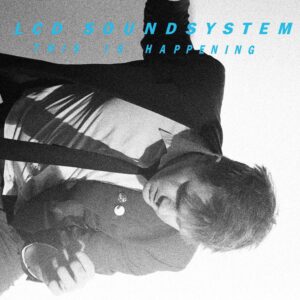
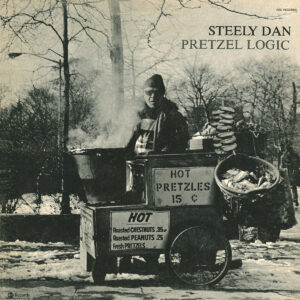
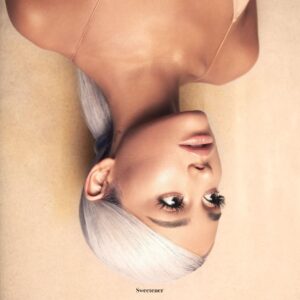
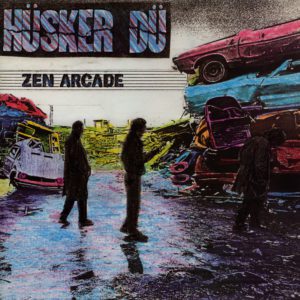
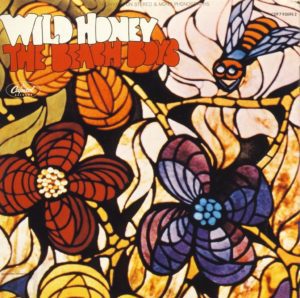




Don’y have the last three you featured. With you on the ones you gave high ratings. Another band that I should pull out more for the simple reason , I really like their music. As usual your takes will send me into a listening binge. Thanks for the reminder.
Laughing Stock’s pretty essential if you like Spirit of Eden – takes it a bit further into esoteric/jazzy territory.
I’m going to be revisiting right away. I was unclear about my comment. I have and like ‘Spirit’. It’s the last two and the Hollis album that I need to listen to.
The b-sides are mostly dispensable, there are just a few really good ones from the late era.
I’m curious. I like it when musicians change it up. Keeps me interested. I just watched an episode of Austin City Limits last night. Robert Plant was playing with a band called The Sensational Space Shifters. Lots of great musical ideas in this one. Man was it ever good. I really like what Plant has been doing the last few years. Anyways back to Talk Talk …
It’s pretty bizarre how much I dislike synth Talk Talk – it’s not like I hate synth-pop generally, they were just so much better when they got more organic.
The whole synth thing can be tricky.
When I think about it, I do struggle with early 1980s synth-pop – I find that 1980 Buggles album hard work. I like the Pet Shop Boys later in the decade, but maybe technology had improved enough to have better sounding records by then.
I don’t think I have a lot of synth pop. I have lots of ELP, Yes, Genesis etc. Lots of the music I have has synth sprinkled into it. I’m all over the map with my tastes.
I like his sound on Colour of Spring and Spirit of Eden and the other one, but I’ll take the songs It’s My Life and Such a Shame any day. They’re great.
I really hate early 1980s synths for some reason. I like synths in the 1970s, I like them in the later 1980s, and I like them now, but something about them in the early 1980s just rubs me the wrong way.
Me too usually. Synth-pop was kind of touch and go, to say the least. You had to take what you could get. It’s My Life is a real classic song though.